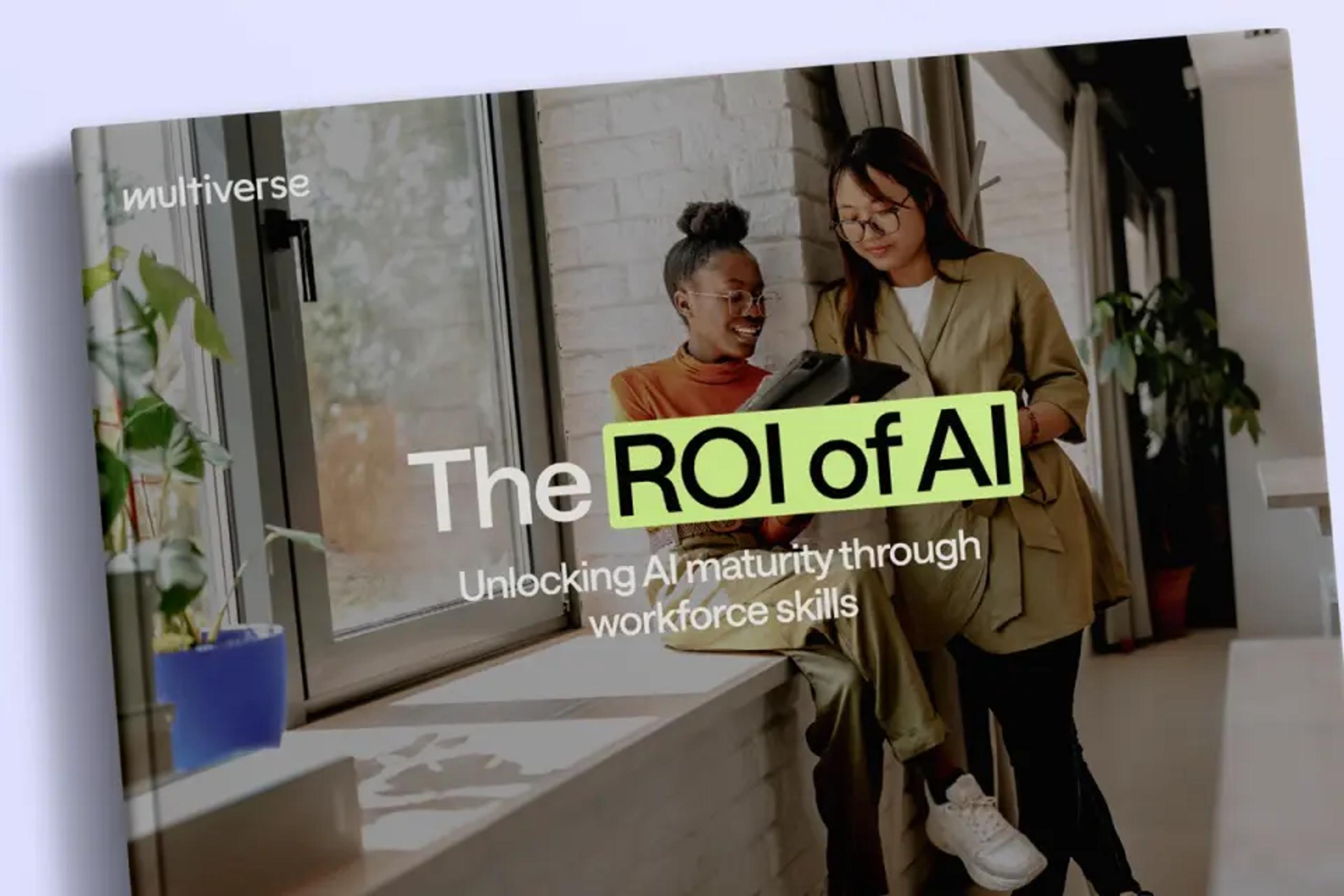Contents
There have been many challenges for organisations in 2022, but a lack of data hasn’t been one of them. Businesses around the world are generating, collecting and analysing more data than ever before.
The real question is: What are they doing with it?
The power of data lies beyond its mere existence. To truly understand the impact data brings, companies must embed it into their everyday culture, use it to make decisions, increase innovation and leverage it strategically to drive transformative change.
As we enter a new year, digital transformation goals are top-of-mind for business leaders — and data is at the core of their ability to achieve results. Gartner reports that by 2025, Chief Data Officers (CDOs) who establish real data value streams will significantly outperform(opens new window) their peers.
As we explore new ways to transform in 2023, what are the key emerging trends and strategies that truly deserve your attention? We’ve identified 7 key digital transformation resolutions to prioritise for the coming year.
1. Build a data-driven culture
In 2023, digital transformation will be about more than just having the right tech stack — it will be about establishing culture.
Companies that work to build an authentic culture of learning, embracing, and utilising data will be best positioned to transform insights into revenue.
“For many companies, their ability to grow is contingent on having the right data skills. And it's not enough for those skills to be siloed within a 'data team', they need to be spread throughout the business," says Euan Blair, CEO of Multiverse.
The takeaway: a data-driven culture needs to be established at all levels.
Leaders that educate and upskill employees on how to leverage data on a regular basis and build enthusiasm around new data capabilities will build data-savvy organisations, equipped to navigate the challenges and opportunities of the future.
2. Increase data literacy
Data literacy — the ability to contextualise data and use it strategically — is a key result and benefit of efforts made around building a data-driven culture. It’s also what enables organisations to make the jump from simply having data to leveraging it strategically.
Forbes named digital and data literacy the top two(opens new window) most in-demand skills for the next 10 years, suggesting companies that can build it among their existing employees are likely to gain a quick competitive edge.
Like culture, data literacy requires employee engagement and building shared language around data.
The ability to make faster decisions driven by data has a proven impact on the bottom line — from identifying revenue generating opportunities via new insights, maximising the ROI from critical technology investments and reducing consultancy spend by bringing more skills in-house.
3. Close digital skills gaps
Despite clear recognition of the digital skills imperative, the actual skills gap has only been increasing. McKinsey found that an alarming 87%(opens new window) of organisations report they either currently have a skills gap or expect to have one in the next few years.
Why are companies allowing this gap to grow?
Part of it is a perceived digital skills shortage — a simple lack of trained, capable workers to fill data and other digital roles. But a closer look shows that this isn’t the whole story.
A recent Salesforce report found that three-quarters(opens new window) of workers around the world say they’re not equipped for the digital skills businesses need, or for the future of work. And it’s no wonder — while 82% of workers say they plan to learn new skills in the next five years, just 28% are actively involved in learning and training programmes today.
The problem is not a lack of employee ability or willingness to upskill, but rather a lack of access to programmes that enable them to be successful. In fact, EY reports that ineffective upskilling is the number one barrier(opens new window) to a company’s ability to secure in-demand digital and technology-related skills.
In 2023, it will be up to CIOs, CDOs, and other business leaders to step up their game in this area. One proven way to do it is through apprenticeships — programmes that use applied learning to upskill current employees and onboard new talent.
Even companies that are data-driven by nature are finding value in these programmes for elevating their capabilities. Consumer trends forecaster WGSN recently partnered with Multiverse to launch their own apprenticeship program, which has had immediate client-facing impacts.
“In terms of retaining clients, identifying and taking advantage of upsell opportunities, the data acceleration program has had a direct impact,” explained Ryan Keane, VP of Data Analytics. “A lot of businesses didn’t realise just how much data and analytics WGSN had available to support their project goals. Once they saw how embedded data was in our forecasting process, it helped us win new business.”
4. Understand the opportunities of AI
Given the sheer volume, speed, and scale at which we generate and use data today, businesses are increasingly turning to artificial intelligence to realise data’s full value.
AI technology mines and analyses data to uncover insights that would be impossible to find using traditional methods. Augmented analytics and capabilities like natural language processing ensure companies can pull insights from unstructured and/or non-numerical data for maximum ROI.
Forrester predicts that in 2023, AI will become a board-level topic, with one in four(opens new window) tech leaders reporting directly to their board on AI governance. A critical part of digital transformation will be building the right skill sets across various teams to leverage AI tools and insights effectively.
Scott Francis, Technology Evangelist at PFU America, a Fujitsu company, foresees an interesting use case for AI in 2023 — one in which AI enables greater data lineage and enhances employee skills and training.
“The lack of insight caused by the ‘black hole’ of dark data will continue to plague companies in 2023, including the loss of knowledge every time an employee leaves the company,” Scott noted.
“This knowledge gap will lead organisations to leverage AI to classify employee knowledge, making sure everything is captured and searchable, thus enabling team members and new employees to quickly ramp up rather than starting from ground zero.”
5. Secure internal stakeholder buy-in
Today we hear endlessly about the customer experience — why it’s important, how it’s changed, the evolving expectations around it, and how to deliver one that consistently wins new business.
But what about other stakeholders?
With any change initiative, a common misstep business leaders make is focusing so intently on the customer experience that they look right past another critically important stakeholder group: your employees.
Communication is key. According to McKinsey(opens new window), businesses with the highest transformation success rates place more focus on engaging employees through the process.
Digital transformation inevitably means great change for employees — many who have spent years or even decades building expertise with certain tools and workflows. Leaders must be sensitive to the impact of this change and build employee engagement by helping them succeed.
6. Modernise with cloud
The business world is officially moving to the cloud. Long on its way, the pandemic accelerated migration timelines for many organisations — and it’s not slowing down.
Gartner predicts that by 2025, 85%(opens new window) of organisations will embrace a cloud-first principle and be unable to execute digital strategies without cloud-native architectures and technologies. Further, 95% of new digital workloads will be deployed on cloud-native platforms.
The rise of remote work and the new norm of anywhere-access to important data and digital workspaces are just two important reasons why cloud is becoming such an imperative.
Business leaders hesitant to make the jump often have misconceptions about what it means to migrate to the cloud. Multi-cloud and hybrid cloud options allow organisations to maintain the legacy infrastructures they need or take a phased approach to adopting new ones that meet modern business demands.
Cloud computing also significantly levels up a company’s ability to store, manipulate, and distribute data across the organisation more quickly, securely, and without geographic barriers.
Looking to the future, Milind Govekar, Vice President at Gartner, put it succinctly(opens new window): “There is no business strategy without a cloud strategy.”
7. Facilitate collaboration
Today, we're more interconnected than ever across internal business units and between organisations. A major advantage to this increased connectivity is a greater ability to collaborate and access different perspectives around any given topic, initiative, or long-term strategy.
Software applications — particularly platform technology solutions — have facilitated this type of ongoing collaboration on a day-to-day basis as employees and teams can work in the same digital space, communicate through its channels, and see new updates and changes in real time.
Perhaps most importantly, collaboration enables a holistic upskilling experience for employees as they learn from each other’s knowledge and skills, maintaining open lines of communication to ask questions, get feedback, and work together on projects to maximise diverse data skill sets.
Facilitating this type of interaction should be a priority for leaders as we enter the new year.
According to business leaders like Will Yang, Head of Growth at non-profit fundraising platform Instrumentl, “the best way to close internal data skills gaps is to be willing to ask for help and learn from others.”
“It's important to be willing to ask for help because the key to closing these gaps is building a culture of learning and sharing,” explained Will. “You can't do that without being willing to share your own knowledge and expertise with others, which means it's not just about finding people who have the skills you need but also working together with them so you can both grow and learn more.”
Takeaways for successful digital transformation in 2023
Here are the key themes to keep in mind this year:
- Utilise your data to drive value for your organisation. It needs a strong culture to be embraced, literacy to be understood, and visionary leaders to provide the right resources for their employees to learn new digital skills.
- Close digital skills gaps through upskilling your employees. In 2023 and beyond, the best leaders will empower their teams, encourage confidence in their data skills, and give them strategic opportunities to apply them.
- New technologies should be adopted, not avoided. AI and the cloud are here to stay. Companies that build their skills and strategies accordingly will remain competitive.
Most of all, the vision of company leaders is the driving force behind digital transformation.
When time and financial investments are allocated to the right initiatives — building culture, adopting the right tools, and creating a skilled workforce — leaders create organisations that are both equipped for the present and prepared for the future.
Partner with Multiverse to achieve your goals in 2023
Multiverse can be your partner in leveraging apprenticeships to upskill current employees and add new data talent to your company. Our programmes are designed to help your organisation gain a competitive advantage while maximising the ROI on your talent investments.
Learn more about our apprenticeship programmes or get in touch today to explore opportunities.
Talk to us
Reach out today to learn more about the power of professional apprenticeships.







